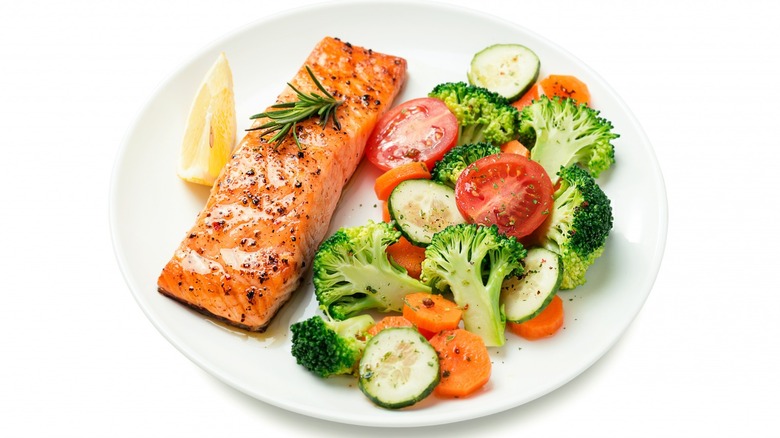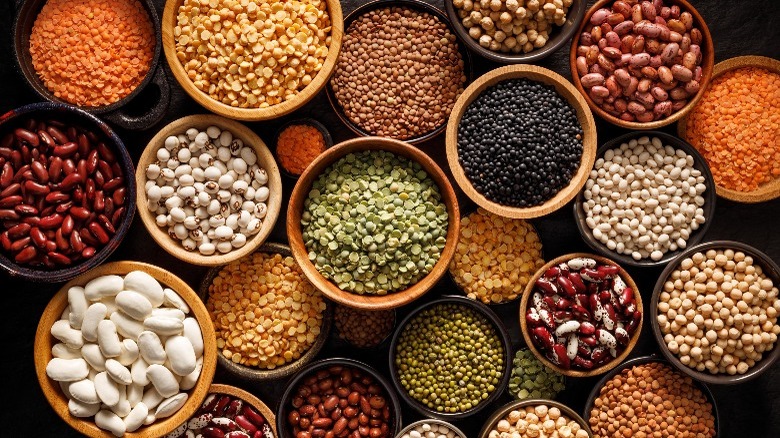Foods That Can Actually Reduce The Symptoms Of Depression
If you've ever experienced symptoms of depression, you're not alone. According to the Anxiety & Depression Association of America (ADAA), nearly 7% of Americans over the age of 18 experience major depressive disorder (MDD). While symptoms can vary between men and women, if you are experiencing MDD, chances are you feel one or more signs, which can include sadness, fatigue, irritability, a sense of worthlessness, among others. While anyone can feel down in the dumps over a job loss, a divorce, a death, depression is a psychiatric disorder that tends to be more severe and long-lasting.
For those that experience depression, health experts say there are a number of ways that may help prevent or reduce the symptoms. For instance, the advisers at Healthline suggest that if you are battling a bout of depression and experiencing fatigue, you should try to push back and do something you love like walking in nature, biking, or painting. Studies have also shown that listening to music can also improve your mood.
However, if these suggestions don't the trick, there is another option that could make all the difference.
These types of foods may help reduce depression
"Food for thought" is an expression that dates back to the 1800s and means an idea or issue worth contemplating (via Dictionary.com). However, as it turns out, certain types of food may actually be good for thought.
Those in the relatively new research field of nutritional psychiatry say there is a link between your diet and your mental health, according to Mind Body Green. While more research is needed, a 2019 study, published in the science journal Psychosomatic Medicine looking into how dietary interventions impact mental health, revealed clear benefits that healthier diets have on reducing depression.
What foods or diet should you choose to improve your mental health? One diet that many researchers are focusing on is the Mediterranean Diet, because it is junk-food free and heavy on healthy options such as fruits and vegetables, fish, nuts, beans and olive oil. Research results have suggested that people who follow a Mediterranean Diet may have up to a 50% chance of reducing their risk of depression. However, other health experts suggest a diet of "pre-agricultural whole foods," which is a diet comprised of whole plants and animal foods. This diet avoids grains and legumes because some experts believe these foods may block the brain's ability to absorb key nutrients such as magnesium and zinc (via Mind Body Green).
At the end of the day, nutritional psychiatry is still an emerging field, and every person's body is different. So consult your doctor on the best diet or combination of diets for you to combat symptoms of depression.


